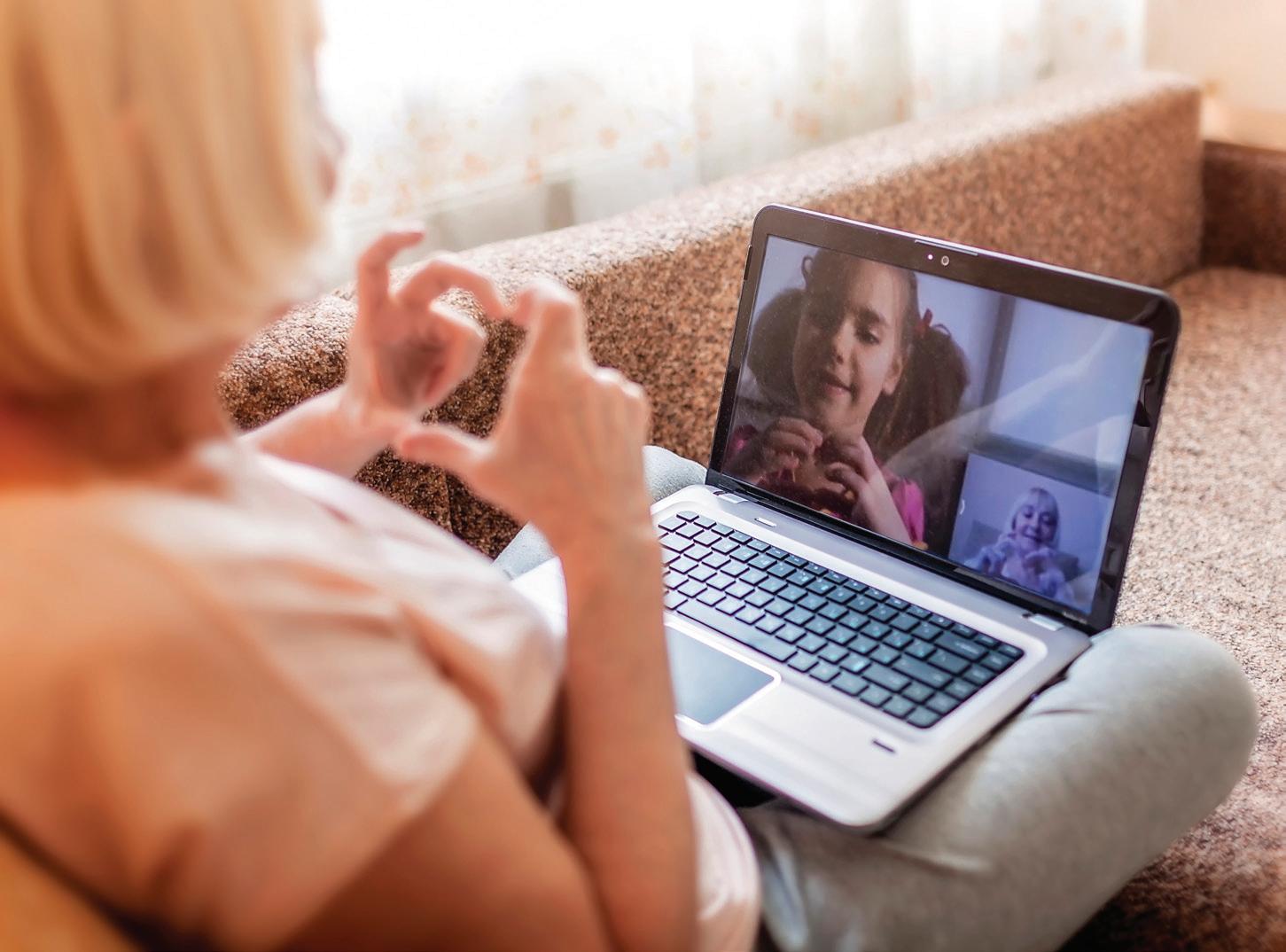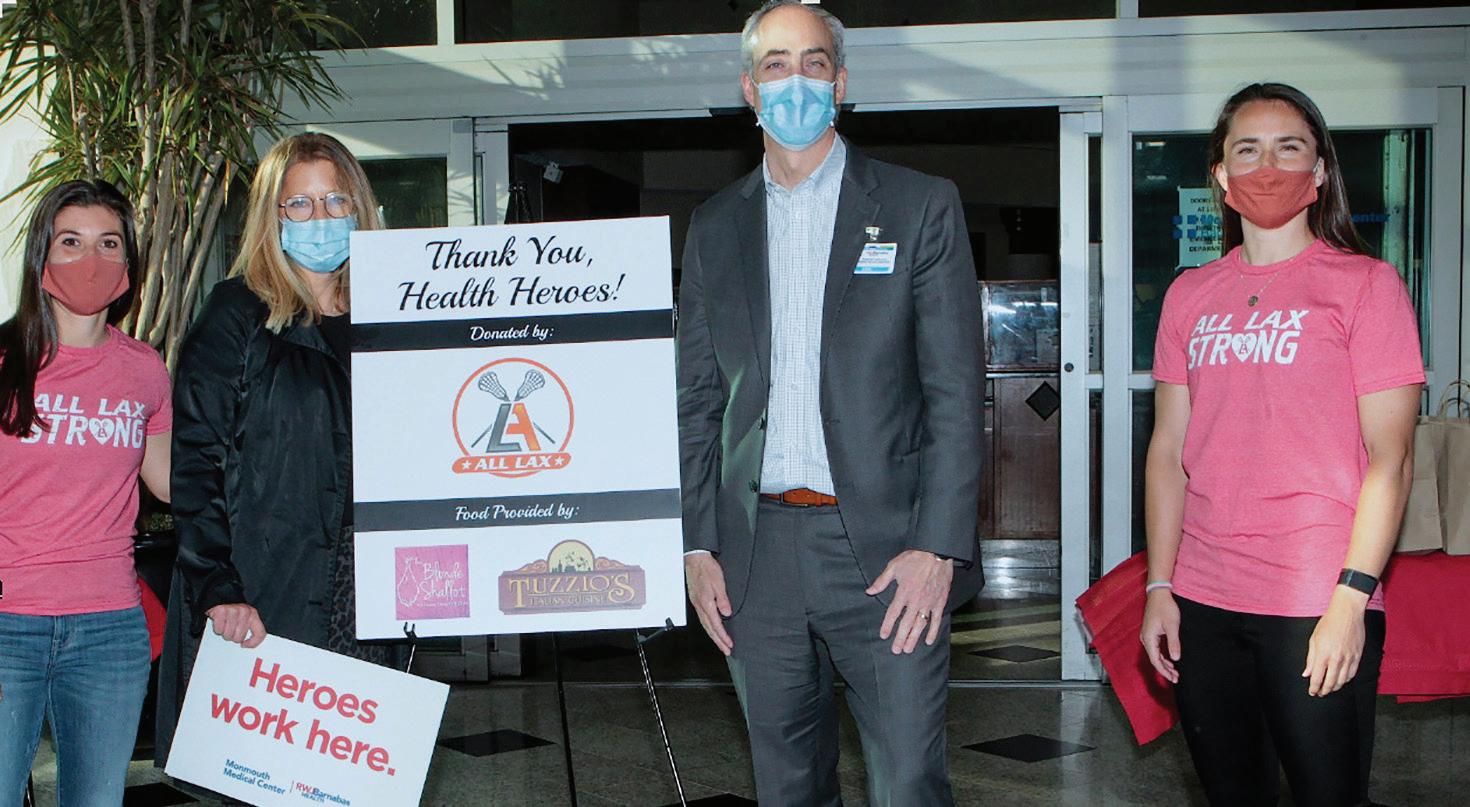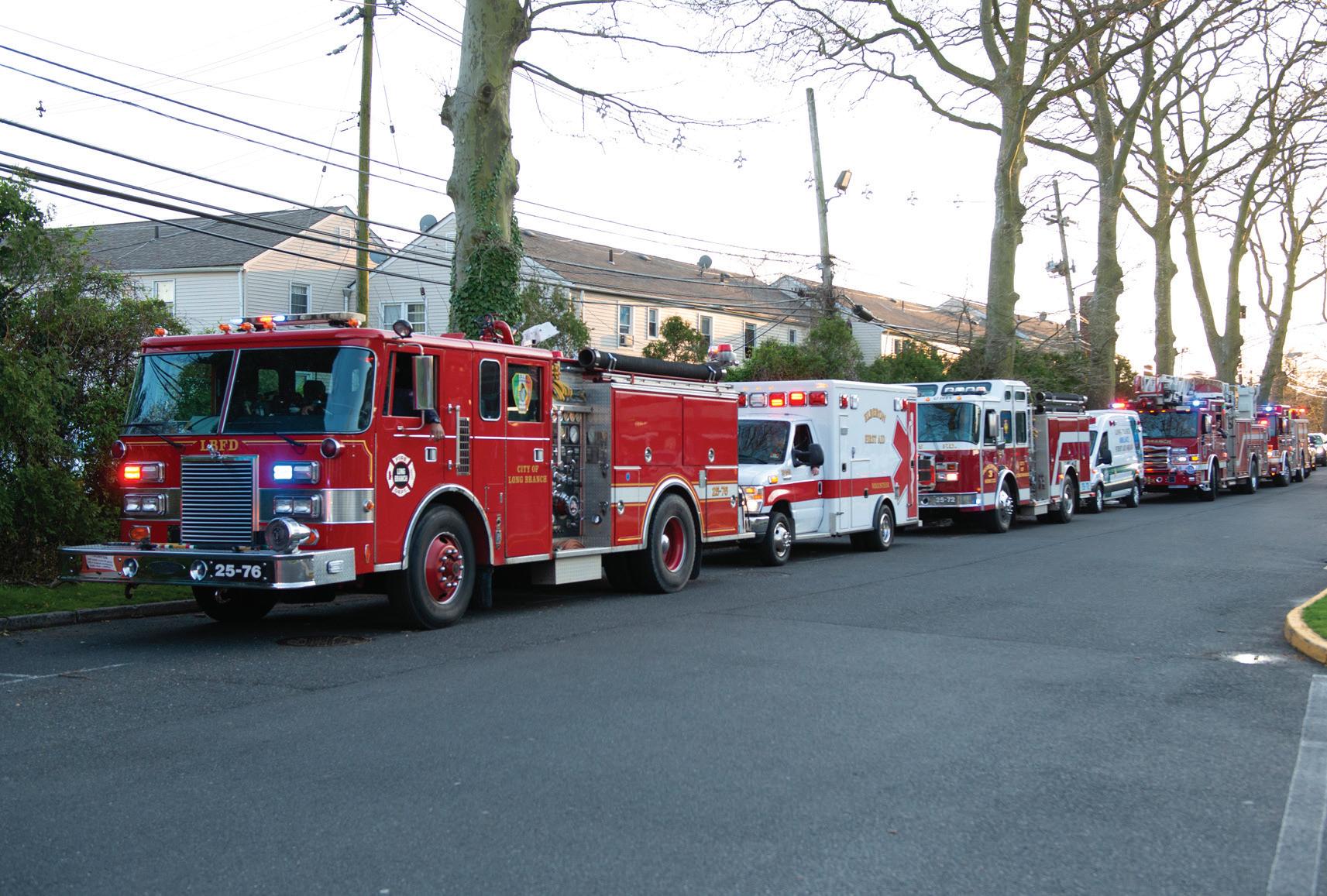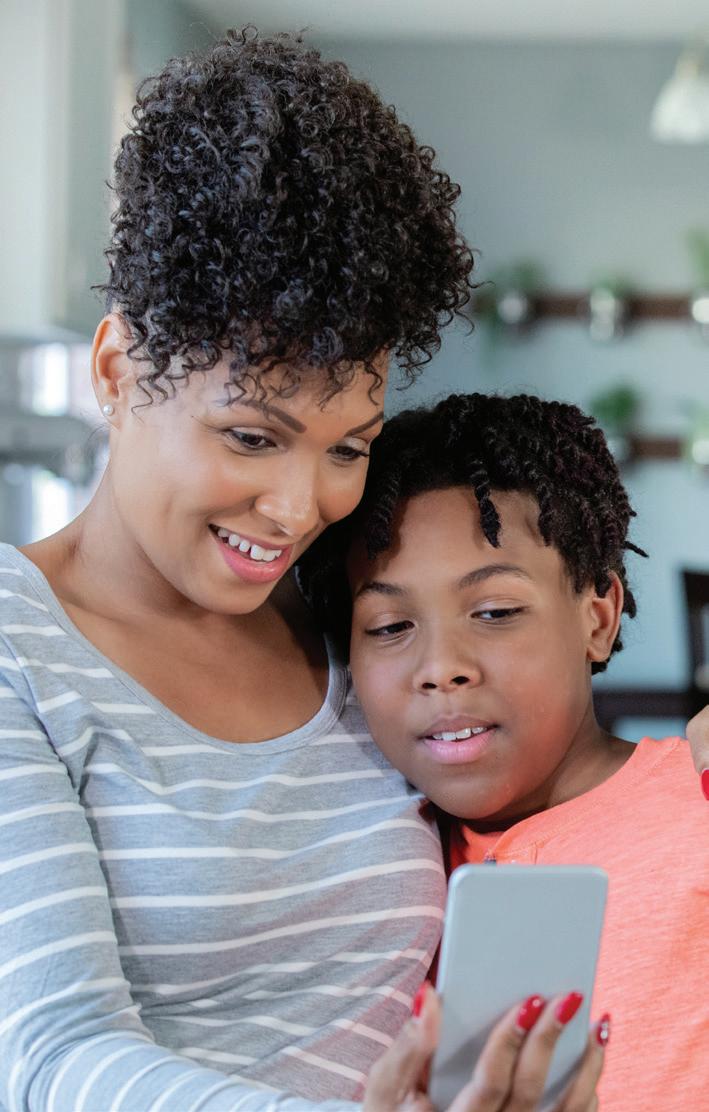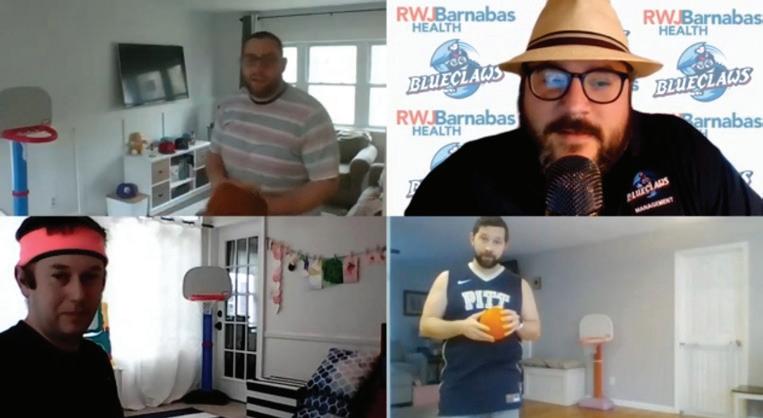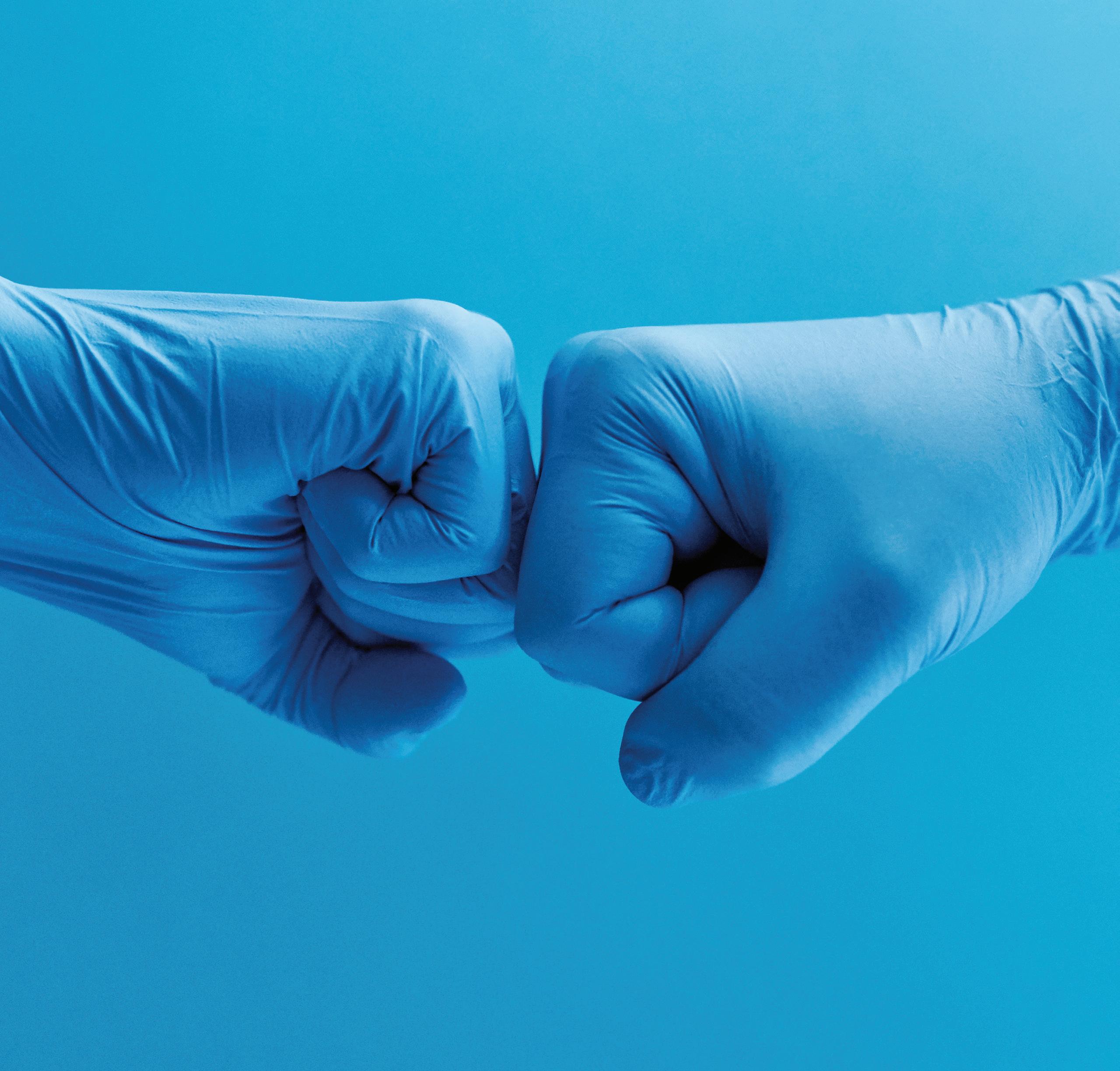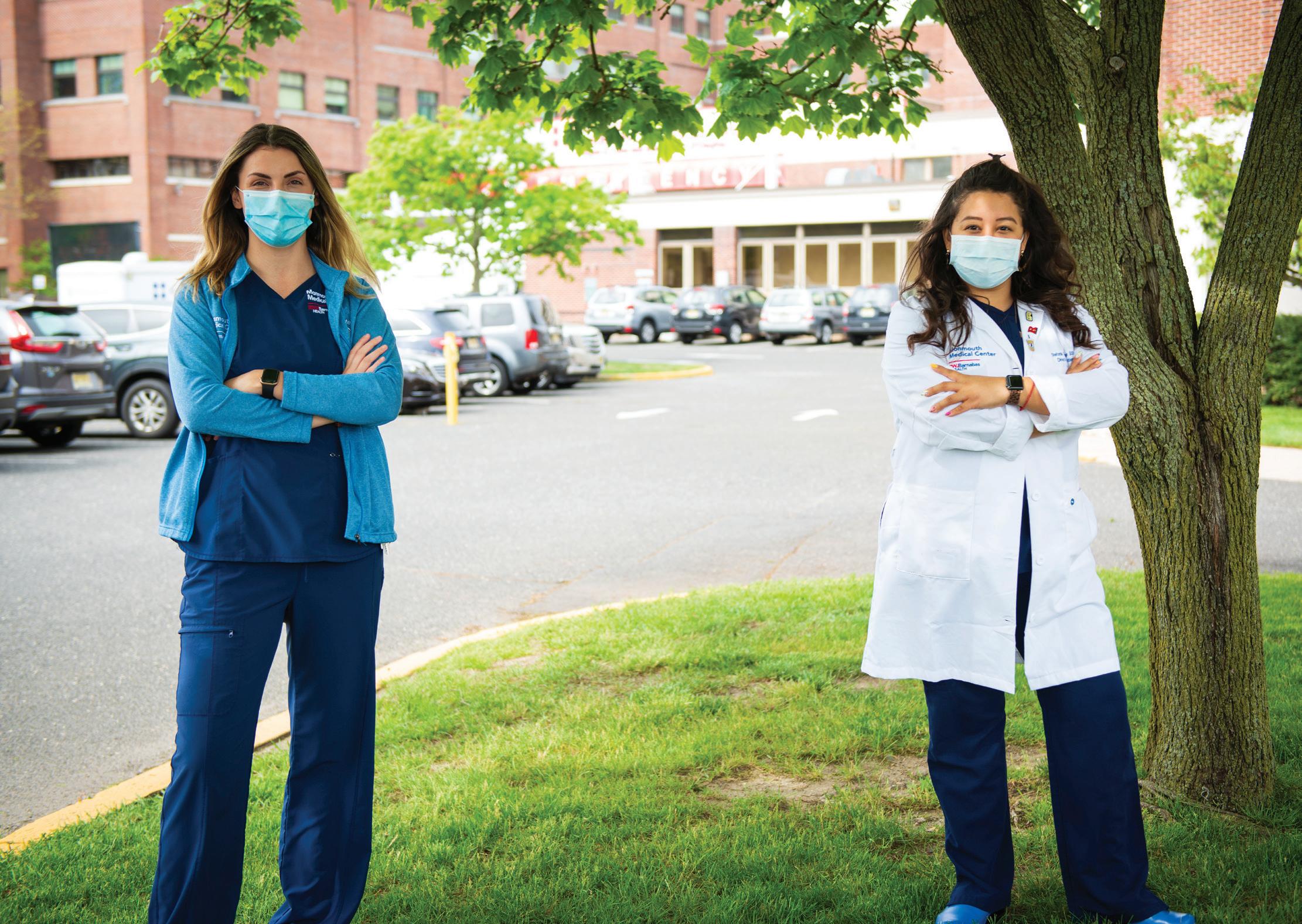
7 minute read
YOUR SUPPORT SUSTAINS US. Communities have
YOUR SUPPORT SUSTAINS US


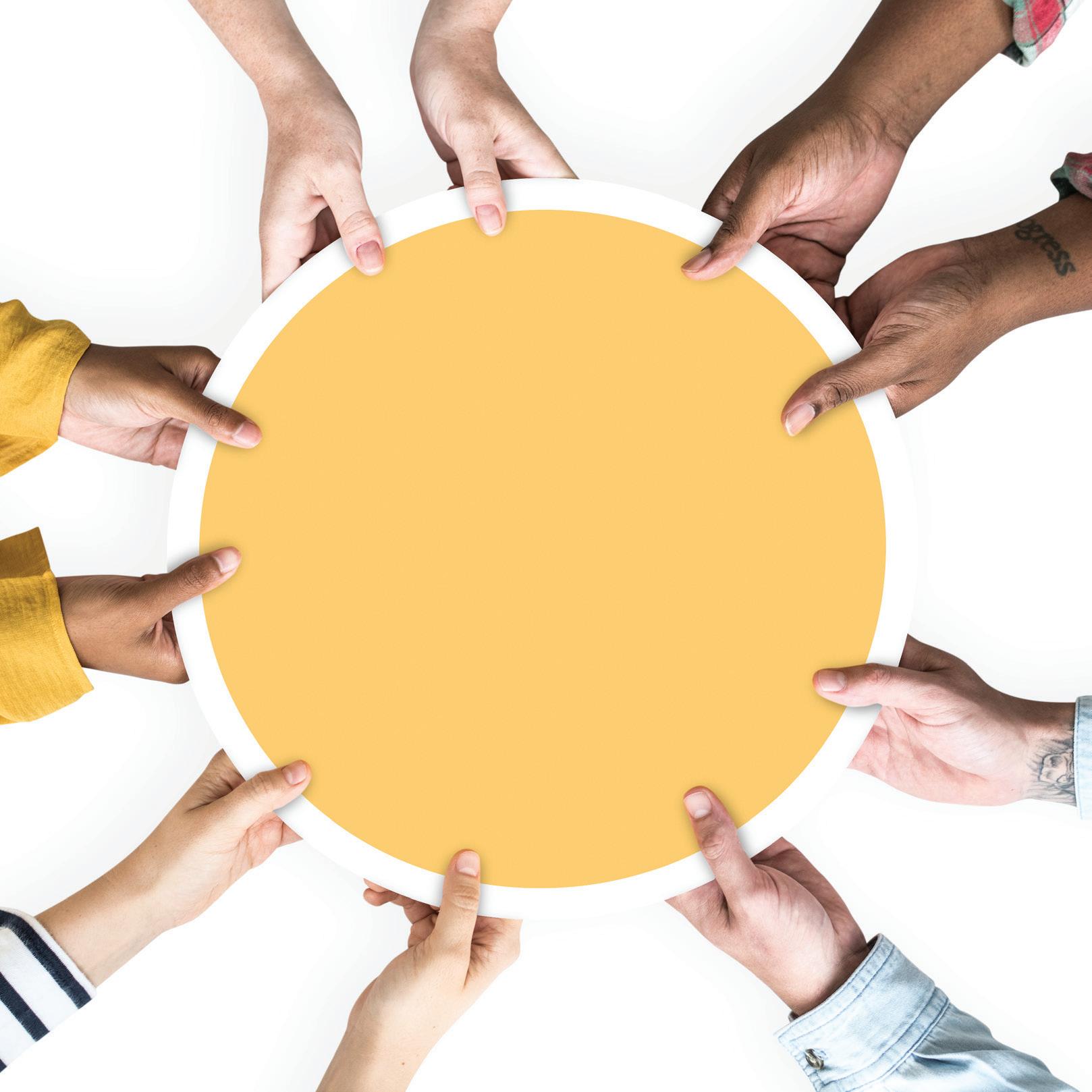
COMMUNITIES HAVE STEPPED UP FOR THEIR LOCAL HOSPITALS IN A BIG WAY—AND YOU CAN STILL HELP .

The off ers from the public began as soon as the crisis did. People emailed, texted and called hospitals, some in tears, wanting to know how they could help local healthcare providers.
Th ey sent money. Th ey donated dinners. Th ey sent cards. Someone had a friend who had a friend whose company could provide personal protective equipment (PPE). A small painting business had 20 face masks to donate. A hardware store provided gloves. Th e contributions came in a steady stream.
“Th e donations were from longtime loyal donors as well as those who had never made a gift to one of our hospitals before,” says Glenn Miller, Executive Vice President and Chief Development Offi cer at RWJBarnabas Health (RWJBH). “People wanted to make sure that our doctors, nurses and staff had what they needed to stay healthy and do their jobs.
“Th e word ‘heroes’ gets used a lot, and admiration for the dedication of our caregivers was driving this outpouring of support,” he continues. “Supporters saw our caregivers getting up to go to work every day under incredibly diffi cult circumstances, fi ghting to save lives.”
As of mid-May, the RWJBH system as a whole had received nearly $11 million in support. Of that amount, $6.7 million came in checks and online gift s, large and small; $3.2 million in donated PPE and other $3.2 million in donated PPE and other supplies; and $870,000 in food donations. supplies; and $870,000 in food donations.
“RWJBH hospitals have always enjoyed “RWJBH hospitals have always enjoyed wonderfully generous support from the wonderfully generous support from the communities they serve,” Miller says. “In communities they serve,” Miller says. “In recent months, I think our doctors and recent months, I think our doctors and nurses were certainly reminded about nurses were certainly reminded about how much people value them and the how much people value them and the work they do.” work they do.”
ONGOING NEED
Th e money raised goes into the RWJBH system’s Emergency Response Fund, where it’s used to purchase much-needed equipment and supplies.
Th e fund also is used to support frontline hospital workers. “When employees need to be quarantined employees need to be quarantined away from their families, we’ve away from their families, we’ve been able to help make that happen,” been able to help make that happen,” Miller says. “Other colleagues needed Miller says. “Other colleagues needed childcare so they could come to work. childcare so they could come to work.
And sadly, we’ve lost colleagues, and we’re And sadly, we’ve lost colleagues, and we’re working to develop resources to address the working to develop resources to address the repercussions of such terrible losses.” repercussions of such terrible losses.”
Beyond tangible support, the outpouring Beyond tangible support, the outpouring from the community provided an invaluable from the community provided an invaluable morale boost. “For healthcare workers going morale boost. “For healthcare workers going through this experience, to take a break through this experience, to take a break and fi nd a hot meal or a card or a note—it’s and fi nd a hot meal or a card or a note—it’s meant the world to them,” Miller says. meant the world to them,” Miller says. “When you feed someone, you’re enriching “When you feed someone, you’re enriching their body, obviously, and also their soul.”
Th e Emergency Response Fund remains open. “We’re in an ongoing crisis, and philanthropy will continue to play an important role in helping us prepare for any surges or future outbreaks,” Miller says.
In addition, capital projects, new programs and equipment upgrades will still need to be funded for each medical center.
“We’re incredibly grateful for the outpouring of support, and the tremendous positive impact it has on our work and our commitment to keeping communities healthy,” Miller says. “We cannot thank people enough.”
Th e gift s also have a benefi t for the giver. “We’ve heard that people in the community want to feel that they have the ability to bring hope,” says Miller, “and that they’re empowered to make a diff erence.”
To donate to Monmouth Medical Center or to RWJBarnabas Health, visit the Emergency Response Fund at www.rwjbh.org/give.
BACK FROM THE BRINK
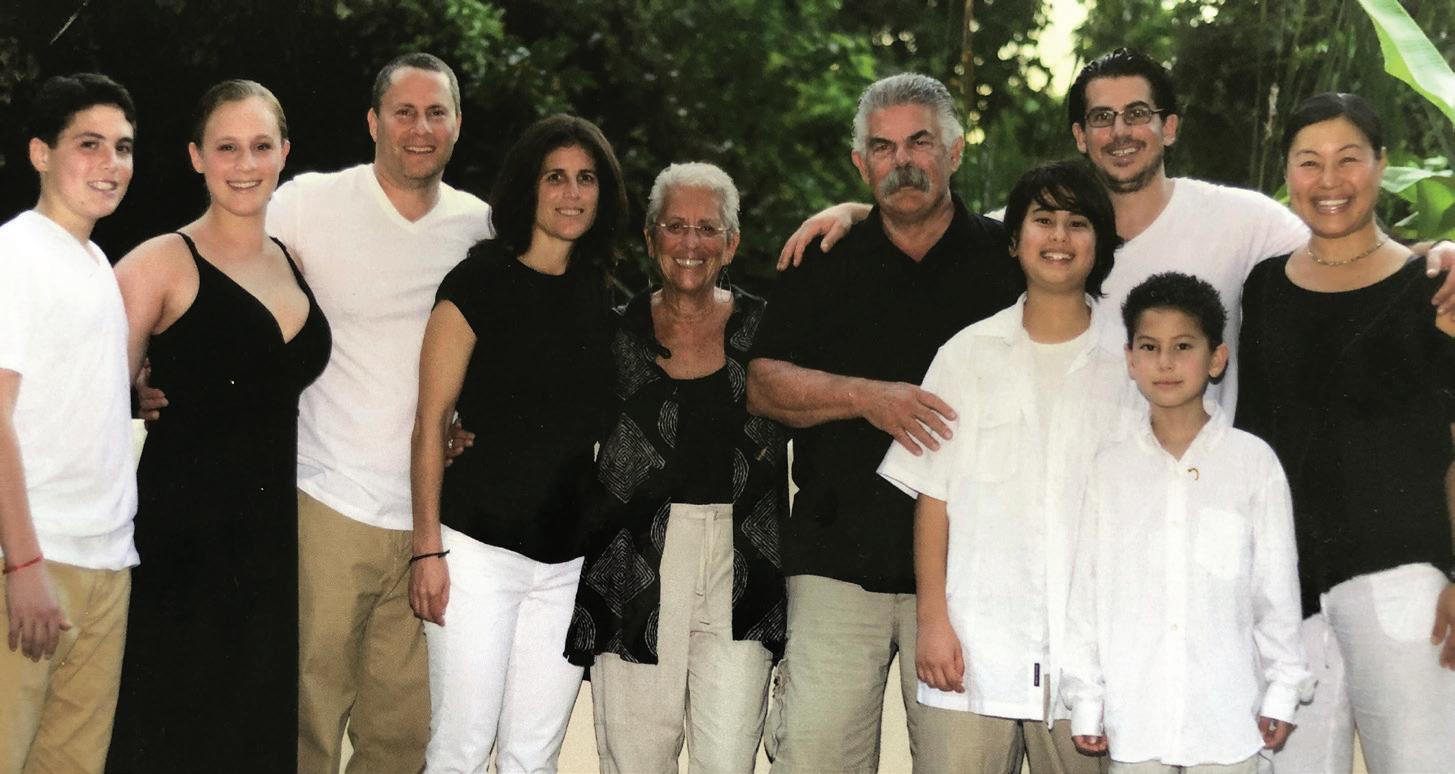
FAMILY MEMBERS AND HEALTHCARE PROVIDERS FORMED A CLOSE BOND AS THEY HELPED A VERY SICK MAN RECOVER.
“T hey say miracles happen,” says Bonnie Blitstein of Monmouth Beach, “and I guess my husband is one of them.”
Bonnie’s husband, Barry, 77, had an extraordinarily long battle with COVID-19, one that included 28 days at Monmouth Medical Center (MMC) and a stint in rehab aft er that.
Now he’s home and back with the loving family who were with him, virtually if not in person—since no visitors were allowed in the hospital—for every day of his journey.
“He is doing fabulous,” Bonnie says. “It’s amazing that he came through this. We never thought we’d see him again.”
ATYPICAL SYMPTOMS
Th e illness began not long aft er Barry and Bonnie returned from a monthlong stay in Florida. “He became lethargic and stopped eating, and Barry’s a big guy—he always ate,” Bonnie says. In the Emergency Department (ED), he was tested for COVID-19, and the couple went home to await the results.
Several days later, Barry became disoriented and confused. Th en they learned the test had come back positive. Bonnie drove Barry to the ED, but was not allowed to enter the hospital with him.
“Th at’s when we found out he had double pneumonia,” Bonnie recalls. “And then he was just sleeping for three-anda-half weeks. He couldn’t swallow or take any food and couldn’t talk. We would try to FaceTime with him and he would just mumble. It was terrible.
“Barry had none of the typical symptoms of COVID-19—the coughing, the shortness of breath,” Bonnie says. “Th e virus seems to aff ect people in all diff erent ways. For some reason, it seemed to aff ect his brain.”
FAMILY CONNECTION
“From the beginning, Barry’s family was very involved and supportive,” says Lauren
Above, the Blitstein family in 2015 at an anniversary celebration for Bonnie and Barry; below, the window of Barry’s room on G5.
Russo, MSN, RN, Director of Patient Care for the G5 unit where Barry was cared for. “As nurses, we were doing everything we could to facilitate communication and connection.”
One nurse held her phone to Barry’s ear so that his family could speak to him; Russo off ered her work iPhone so the family could FaceTime. “While Barry couldn’t participate much in those early days, his family FaceTimed with him every day,” Russo says. “Th ey encouraged him to fi ght and come home.”
Barry’s respiratory condition began to decline, and he required levels of oxygen that were diffi cult to tolerate. He fought his way back, but was steadily losing strength because of his inability to eat. He was having only brief moments of mental clarity.
Doctors decided to have a feeding tube placed, and the tide fi nally turned. “Postprocedure, he was like a new man,” Russo says. He was speaking much more clearly. Th e family FaceTime sessions became twoway conversations.
With the assistance of the Physical Th erapy department, Barry got stronger. His family worked with MMC’s case management team and social workers to arrange for his discharge to rehab.
“During that last week, we as a team were fi nally able to see Barry’s true personality,” Russo says, “and what a wonderful, warm and very funny person Barry is.”
For Barry, much of his stay in the hospital was a blur. “So much of it is blank,” he says. “Th e fi rst thing I said when I was able to speak was, ‘How long have I been here?’
“All I can tell you is that the people who work at Monmouth Medical Center are a true pleasure, so nice, caring and sympathetic,” he says. “Now, I feel terrifi c.”
“We always called, we knew we were a pain in the neck, but the nurses were so great,” says Bonnie. “Just the kindest, sweetest people. We are incredible grateful to them and to the fabulous doctors working around the clock. Barry couldn’t have gotten better care anywhere.”
“I’m thankful that his family continues to update us on Barry’s progress,” says Russo, “because almost daily, a member of my team asks how he’s doing.”


